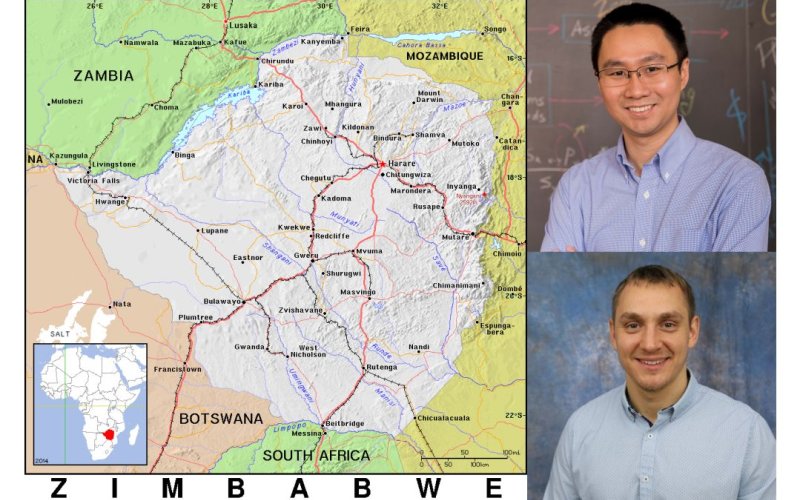Rockefeller Faculty Delivers Training for Zimbabwe Parliamentary Staff

ALBANY, N.Y. (Feb. 22, 2022) — Two Rockefeller College professors, Gang Chen and Mikhail Ivonchyk, delivered four weeks of public financial management training in January for the Parliament of Zimbabwe’s senior staff whose work focuses on supporting legislative committees in areas of budget and finance. The executive training was organized through Rockefeller’s Center for Policy Research (CPR) and funded through a 5-year, $3.3 million grant from the United States Agency for International Development (USAID).
The Zimbabwe Parliamentary Strengthening Program develops and provides technical assistance, trainings and educational programs for the elected members, parliamentary committees and staff of the Parliament or Zimbabwe, to strengthen the African nation’s legislative processes and to enable informed and timely passing of laws consistent with Zimbabwe’s constitution.
“Public finance and budgeting is one of Rockefeller College’s nationally ranked specialties,” said Chen, an associate professor in Public Administration and Policy who led training design. “We are excited for this great opportunity to share our expertise in public financial management with the senior staff from the Parliament of Zimbabwe.”
The training sessions were delivered live via Zoom as a synchronous training taking place during participants’ afternoon hours in the capital of Harare and early morning hours in New York.
“This effort by Professor Chen and Professor Ivonchyk is an important one that can make a difference for public officials and help them to do a better job,” said CPR Director and Rockefeller College Professor Victor Asal. “We are proud that the Center is part of the effort to make this happen.”
The month-long training consisted of workshops and lectures on public budgeting; economic development, budget and fiscal policy; budget systems and reforms; governments’ financial conditions and cutback management; fiscal transparency and citizen participation; capital budget and infrastructure financing; intergovernmental fiscal relations; and debt management. The program served as the first of five modules to be delivered in the program, which will continue over about 18 months.
“Future modules will be delivered over Zoom as well as in person in the U.S. and in Zimbabwe and will focus on the role of legislatures in national budget formulation and budget oversight process, in the U.S. and internationally,” said Sladjana Bijelic, the principal investigator on the project for CPR. Upcoming topics will also focus on analytical services, staffing, and tools and methodologies used by legislative staff to effectively support legislative committee during the budget cycle,” she said.
USAID, which leads international development and humanitarian assistance programs through partnerships with nations all over the world, is working with the Southern African Parliamentary Trust (SAPST) and Rockefeller College to deliver this five-year institutional capacity building program.




